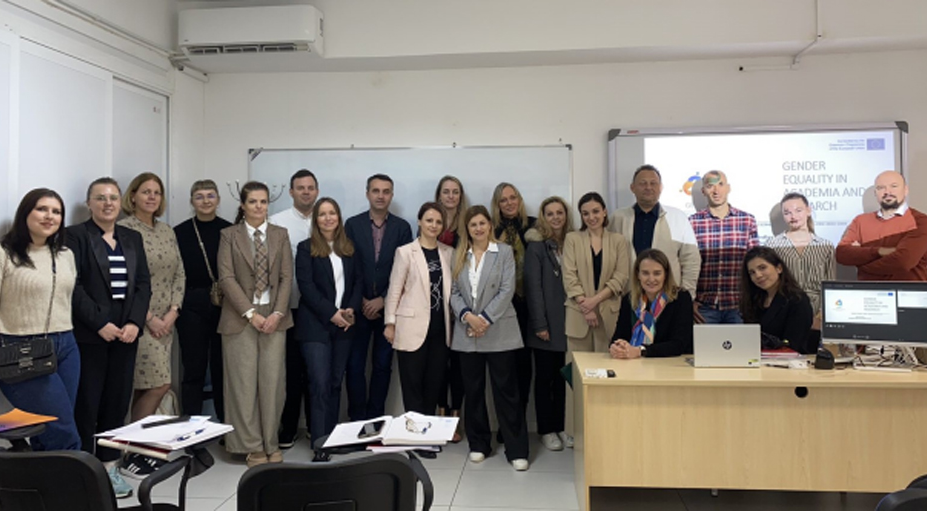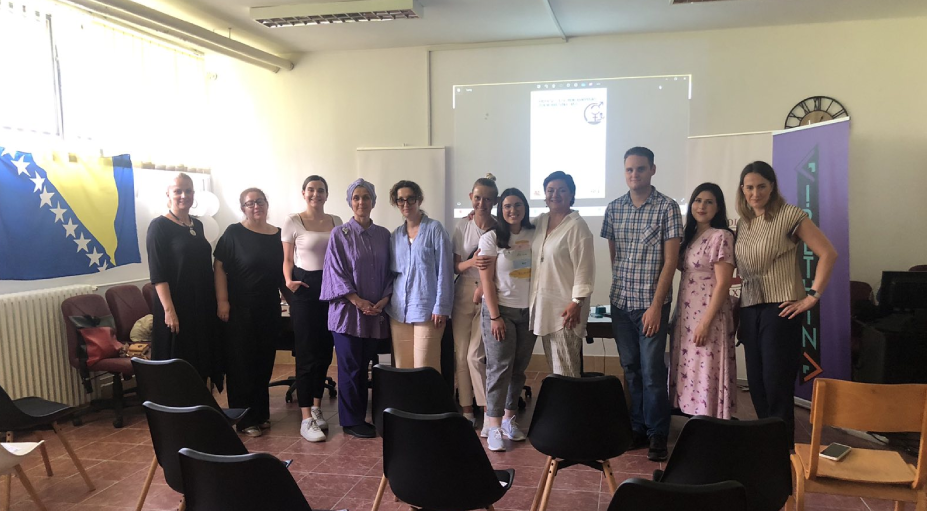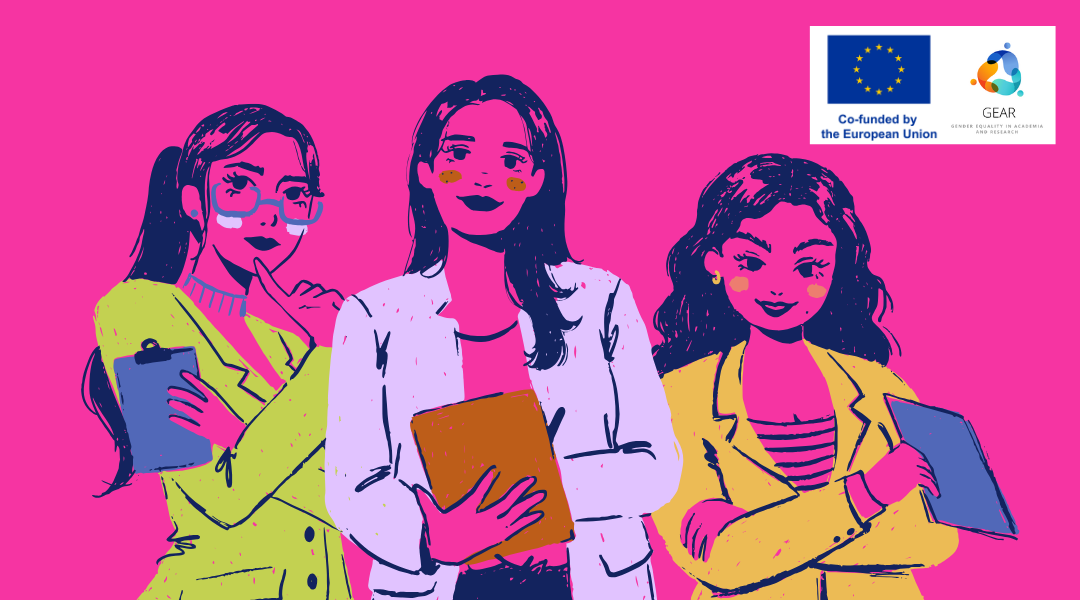European Union
GEAR (Gender Equality in Research and Academia)
SEPTEMBER 1st, 2024 | IRMELA PRCIĆErasmus+ project GEAR (Gender Equality in Research and Academia) aims to improve gender equality in higher education and research sector. The project seeks to create an inclusive academic an environment that enables the equal participation of women, with a special focus on women from marginalized groups, including Roma girls and women from rural areas. Through the development of gender-sensitive educational programs, institutional action programs plans and research on gender equality, the project contributes to the reduction obstacles hindering women in accessing scientific and academic work.
Through a series of targeted activities, the GEAR project includes development of innovative educational programs, training and mentoring networks, with the aim of strengthening the capacity of women to participate in modern market and scientific trends. Special attention is paid to girls from the Roma community, who often they face multiple barriers, including economic, social and cultural barriers. The project creates opportunities for their education, professionally training and social integration, while promoting breaking stereotypes and reduction of social exclusion.
The project consortium consists of the following academic institutions and organizations:
Faculty of Management Herceg Novi (Montenegro) - coordinator project, Vilniaus universitetas (Lithuania), University of Maribor (Slovenia), University of Montenegro (Montenegro), Independent University of Banja Luka (Bosnia and Herzegovina), University of Tuzla (Bosnia and Herzegovina), Singidunum University (Serbia).
In addition to academic institutions, civil society organizations also participate in the project: Association of young women GirlTHing Tuzla (Bosnia and Herzegovina), Socio-Economic Center of Montenegro, Western Balkan Institute (WEBIN) (Serbia).
Empowerment of women has a far-reaching impact not only on individuals, but also on a wider scale social and economic community. The project contributes to increasing employability, reducing the gender gap and encouraging the transition towards economies based on knowledge. In this context, GEAR provides key support to European priorities for Western Balkans, including sustainable development, inclusiveness and social cohesion.
The project is financed by the European Union and will we finished by 30.11.2026.
The views and opinions expressed are, however, only the author's and do not necessarily reflect the views of the European Union or European Education and Culture Executive Agency (EACEA). Neither the European Union nor EACEA no can be responsible for them.





